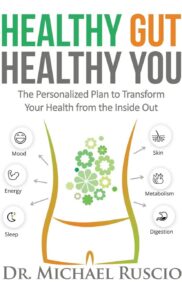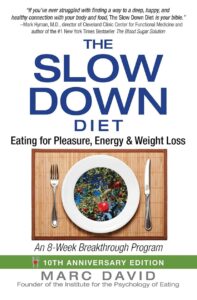All disease begins in the gut. – Hippocrates
The road to health is paved with good intestines!― Sherry A. Rogers
Did I bite off more than I can chew with this topic? Any discussion about the gut or the microbiome will be longer than your small intestine. As medically complicated as the digestive system may be, it has always been embedded in the slang, colloquial, and idiomatic expressions we use:
- No guts, no glory.
- That was really hard to swallow.
- I need to digest all this information.
- I have butterflies in my stomach.
- I have a gut feeling that something is going to happen.
Make no mistake about it, your gut feelings are more than your intuition. In fact, your intestines are like a second brain—the nickname for the enteric nervous system (ENS), which is contained in your gut. In his book, Healthy Gut, Healthy You, Dr. Michael Ruscio discusses the gut-brain connection: “If you think about it, your intestines even resemble your brain. This might be because during early fetal development, your gut and your brain both develop from the same clump of cells.”
The ENS is two-cell layers thick and spans your entire gastrointestinal tract from esophagus to rectum with more than 100 million cells.
The Brain-Gut Connection | Johns Hopkins Medicine The brain and gut connection or gut-brain axis is through the longest nerve in our bodies, the vagus nerve, which provides some of the communication. The gut-brain axis can help us understand the connection between diet and disease, including anxiety and depression. Our gastrointestinal tracts are sensitive to our emotions: feelings from anger to elation can trigger responses in the gut. And the messages go both ways — even the thought of eating can trigger the release of digestive enzymes: That commercial really made my mouth water.
Awareness can be used as a powerful tool in digestion, according to Marc David, founder of the Institute for the Psychology of Eating. The Cephalic Phase Digestive Response (CPDR) is the head phase of digestion: the pleasures of taste, aroma, satisfaction, and visual stimulation of a meal. In his book, The Slow Down Diet, David says, “What’s amazing is that researchers have estimated that as much as 30 to 40 percent of digestive responses to any meal is due to CPDR—our full awareness of what we are eating.” We also have awareness in the gut itself: “…the warm gut feelings we sometimes experience after a satisfying meal or an exciting encounter are, in part, the enteric nervous system squirting pleasure chemicals at distant and neighboring cells.” In fact, a whole host of hormones and chemicals are operative in the gut-brain connection — insulin and dopamine are just two of them.
So how can we use awareness to help us with our digestive issues or insulin resistance? Marc David suggests being “awake at the plate.” In other words, be present during each encounter with your food. Before you begin to eat, do some slow breathing – preferably five deep breaths, in and out. Ask yourself the following questions:
- What foods would best nourish me at this time?
- Is this particular food a good choice?
- Is this a good combination of food choices?
Tune into your gut wisdom to answer those questions before you dig in.
Satisfaction at our meals will be greatly heightened by awareness. Since I have been on my journey, I’ve come to love the humble avocado, for example. And it’s one fruit (yes, it’s got a big pit in it) that does not trigger a glucose response. In fact, every doctor I researched agrees. Avocados are an incredible source of satiety and stability for me. It’s no wonder: they are a dietary fat. I typically pre-load my lunch and dinner with a half an avocado, starting meals with a healthy fat that will blunt the absorption of carbohydrates. They also seem to provide a calming effect on my digestion, especially if I am hungry after a fasting period.
According to Dr. William Li, “Avocados are high in mono-unsaturated fat, most of which is oleic acid, the same fatty acid found in olives and olive oil. Oleic acid has been shown to decrease inflammation in the body and lower heart disease risk. … The health benefits of avocados don’t stop there though. Avocados have anti-inflammatory properties which can help to keep bad cholesterol at bay, reduce the number of LDL particles in our blood, and help to combat metabolic syndrome.” Let’s Talk About Avocados and Fats – Dr William Li
There is so much more to learn about how our bodies work and the connection between the brain and the gut — more than we can cover here. For now, regardless of your health issues, take some time to slow down before you eat. Breathe in, breathe out slowly and …Trust your gut.
♥ Susan L. Ward
Integrative Nutrition Health Coach




